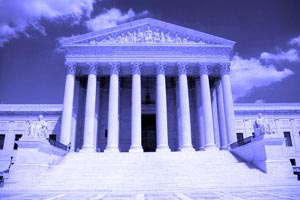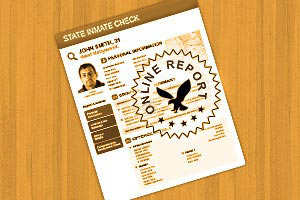South Dakota Public Records
The South Dakota State Records website provides every South Dakota resident with tools to access public records. This ensures South Dakota residents are able to use their right to access and obtain public records in accordance with the South Dakota Sunshine Law, which presumes all government information and records are available to the public.
This website ensures that all members of the general public have the right to access South Dakota state public records without requiring a party to specify a reason for needing the information or revealing any personal information, providing that said record is not confidential by law or court order.
South Dakota State Records contain information about criminal records, court records, and vital records, including over 8 million transparent public records.
Are South Dakota Records Public?
Yes. South Dakota public records consist of government-generated records open to all state residents and non-residents. The South Dakota Freedom of Information Act defines the process and types of public records accessible to the public regardless of the requester’s residential address. More so, it determines the roles and duties of custodian agencies for maintaining, storing, and producing public records. Under the SDCL Chapter 1-27, public records are defined as information and data belonging to the state, department, commission, bureau, council, board, or any tax-supported district, city, or municipality in the state.
What is Considered Public Information in South Dakota?
Public records in South Dakota include:
- South Dakota court records
- South Dakota arrest records
- South Dakota divorce records
- South Dakota death records
- South Dakota inmate records
- South Dakota birth records
- South Dakota sex offender information
Per the South Dakota Sunshine law, public records may exist as typewritten or handwritten documents, such as notes, drafts, books, graphs, reports, and letters. In addition, maps, charters, blueprints, video files, symbols, music, emails, and SMS are classified as public records in South Dakota. The South Dakota Freedom of Information Act empowers interested public members to request and obtain copies of non-confidential public records from respective custodian agencies.
In addition, specific records are not readily available to requesters in South Dakota. Hence, the custodian may deny the appeal from requesters who submit a public records act request for a such closed document.
Note: Personal properties of custodian agencies are not classified as public records and are not accessible to public members.
How Do I Find Public Records in South Dakota?
Record seekers may find public records in South Dakota by requesting the custodian agency responsible for issuing the public document. Although the mode of document retrieval differs for each record, record seekers may access public records via the following general steps:
Know the Criteria for Obtaining the Preferred Public Record
Identify the criteria for the preferred record. Some custodian agencies require record seekers to provide clear and concise search information before accessing public records. In addition, some custodian bodies may require a statement of purpose or a government-approved identification card. To obtain vital records like birth and death records, requesters may need to prove the relationship with the record subject.
Contact the Custodian Agency in Charge of the Public Document
Different custodian agencies maintain and provide access to a variety of South Dakota public records. Thus, record seekers must find the particular agency responsible for providing access to the preferred public document. In addition to this, record seekers must note the agency’s mode of giving access to records - some agencies maintain both online and offline access to South Dakota public records. Moreover, some public records are only available for inspection and may not be copied.
Case in point, the South Dakota Department of Health (SDH) records, and issues copies of vital records to only eligible persons. According to the SDH website, eligible persons include the record bearer, family members, designated agents, and authorized agents like physicians, legal representatives, and funeral directors. In addition, South Dakota vital records are not accessible for public inspection.
Interested persons may access online copies of South Dakota court records via the South Dakota Unified Judicial System’s online platform. In contrast, to get offline copies of South Dakota court records, record seekers may visit the Clerk of the Court in the region where the case occurred. Similarly, the South Dakota Department of Correction provides a statewide database of all incarcerated and parole inmates via the Offender Locator. The Inmate Locator offers explicit instructions on how to do a public record search for inmate files.
Create and Send a Request to South Dakota Public Records
South Dakota custodian bodies may provide online or offline request forms to requesters. For example, the South Dakota Unified Judicial System has a downloadable request form for obtaining court records at any Clerk of the Court’s office. Thus, requesters must select their preferred method of requesting public records.
Not all custodian agencies provide request forms for obtaining records. Therefore, record seekers may use the generalized FOIA request form template. On the other hand, record seekers may write a letter requesting public records at any custodian agency or department. Note that a written request form must contain the following information:
- The requester's full name
- The record subject's date of birth;
- The case number (this applies to court records);
- Purpose of the request - provide a detailed description of your request;
- Date range when the record was documented;
- The record seeker’s full name and, or aliases;
- Preferred mode of delivery;
- Record seeker’s contact details;
- Additional information to assist with the search.
Using Third-Party Sites
Some public records may also be accessible from third-party websites. These websites are not limited by geographic location and come with comprehensive search tools. Record seekers can use these sites to start a search for a specific record or multiple records. To use a search engine on a third-party or government website, interested parties usually must provide:
- The name of the person involved in the record, unless said person is a juvenile
- The location or assumed location of the document or person involved
Third-party sites are independent of government sources and are not sponsored by these government agencies. Because of this, record availability on third-party websites may vary.
How to Use Third-Party Sites to Find Public Records South Dakota
City Records
Public city records may also be accessible from third-party websites. These non-government platforms come with intuitive tools that allow for expansive searches. Record seekers may either opt to use these tools to search for a specific record or multiple records. However, users will need to provide enough information to assist with the search such as:
- The name of the subject involved in the record (subject must be older than 18 or not juvenile)
- The address of the requestor
- A case number or file number (if known)
- The location of the document or person involved
- The last known or current address of the registrant
Third-party sites are not sponsored by government agencies. Because of this, record availability and results may vary.
Public Records
Public records can also be accessed from third-party websites. These third-party public records aggregate websites offer search services that are non-geographically limited, making the search result expansive and typically straightforward. However, users will need to provide enough information to assist with the search, such as:
- The name of the subject involved in the record as long as the subject is not a juvenile
- The last known or location of the record subject
Third-party public records search websites are not government-sponsored services. Therefore, the availability and accuracy of results can vary.
How Do I Look Up Public Records for Free in South Dakota?
To lookup public records for free in South Dakota consider the following options:
In-person Inspection of South Dakota Public Records
Some record custodians enable interested persons to inspect records in person. For instance, law enforcement agencies may also allow record subjects and other eligible persons to view their records at the police department in charge of the document. In addition to this, public libraries may have computer terminals where record seekers can view certain South Dakota public records.
Requesting for Online Copies of South Dakota Public Records
South Dakota custodian agencies or departments may maintain online repositories of public records. Sometimes, record seekers can view and obtain copies of these online records for free. For example, South Dakota sex offender information is free and accessible to the public. The Office of the Attorney General - Division of Criminal Investigation is the record custodian for sex offender information in South Dakota. Via the sex offender registry, interested persons can sex offenders using the offender’s full name, aliases, address, and zip code. In addition to this, sex can obtain information on exonerated offenders and absconded offenders.
Likewise, members of the public can access inmate records for free. The South Dakota Department of Correction maintains an online database of all past and currently incarcerated inmates in South Dakota. To view South Dakota inmate records for free, public members must search the online platform using the inmate’s name last name, city, street name, county, and other search combinations.




